Being politically engaged in the modern political moment is no easy task. Every news article and Facebook post and Twitter thread more often than not seems to render reality flat, a barrage of never-ending updates to the ostensibly inevitable apocalypse on the horizon. Stories like the New York Times’ most recent piece on what we could have done about climate change ten years ago are a daily reminder that millenials have been bequeathed a world spiraling out of control, doomed from the start. The natural, almost guttural response to this fear results in a question that has more or less been asked since the first instantiations of a state or even a social contract governing a body politic: Is it possible to thrive within the confines of a system that seems to be falling apart by the seams minute-by-minute? Or is it necessary to confront the same simple but radical conclusion by the late Audre Lorde that “the master’s tools will never dismantle the master’s house?”
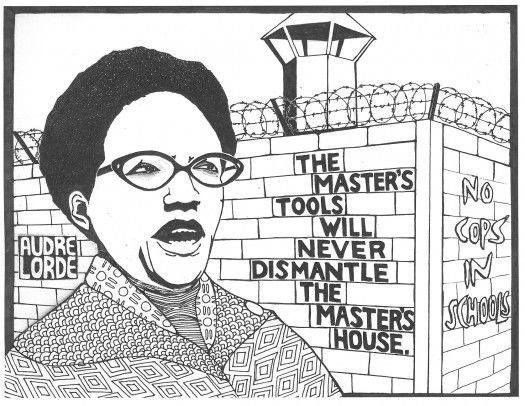
Leftists seem to be divided neatly by the answers to these two questions; the frameworks that result from these conclusions seem to make themselves most evident when it comes to what actions are deemed not only necessary but sufficient in addressing the needs of the future. In the wake of a government that thrives on attention and scandal to distract from the havoc it wreaks on its constituents, it is apparent then that a glaring shift is vital to the future of this nation and its people. What that constitutes, however, is wholly up for debate.
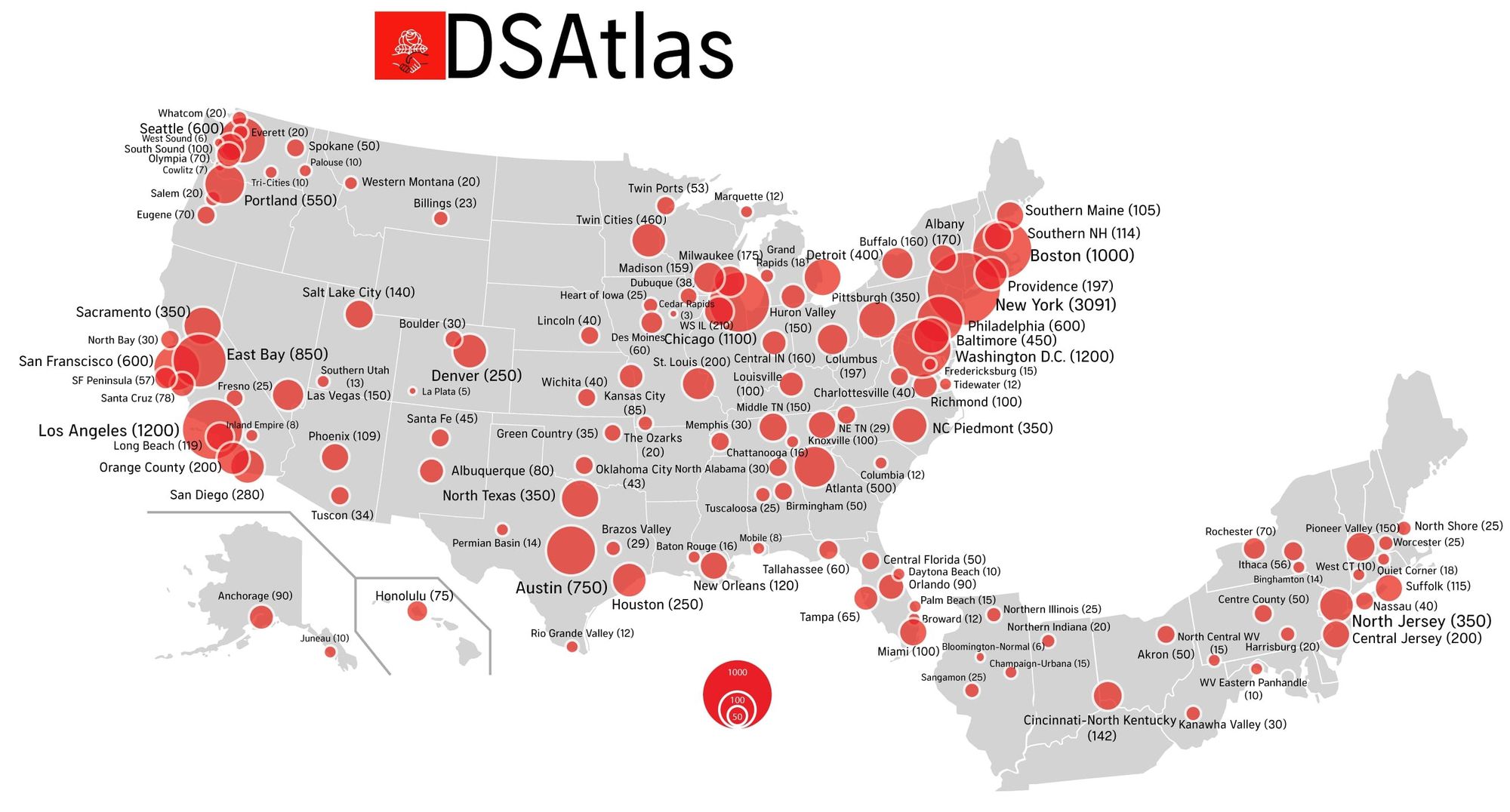
The rise of the movement known as Democratic Socialism in the United States has left many with their eyebrows raised, for better or for worse. A tone has been set for the Democratic Party establishment that a vibrant and boisterous and broad base exists that seeks to build a coalition around such issues as abolishing ICE, Medicare-for-All, and campaign finance reform. This base appears to rally against big-tent establishment Democrats such as Nancy Pelosi and Tom Perez who just “don’t get it”. Making meek compromises and appealing to a mythical center-right “silent majority” on the basis of civility and decorum a la National Public Radio fails to reckon with the stark reality of substantial income inequality, GoFundMe healthcare, and the inflicting of trauma on families that will never quite be the same again.
Demanding “real change” on issues pertinent to the lives of the American working class is the crux of the platforms of politicians calling themselves Democratic Socialists. A country that allows public transportation to be bought out by corporate interests and some of the worst fires in this country to be subject to the vital but last line of defense that are low-security inmates in California’s state prisons is one that makes perseverance porn the new normal; individuals are lauded for being forced to walk dozens of miles to get to their workplace or literally battling Mother Nature for a chance to leave their cell where the natural reaction should be that of moral outrage and disgust. DemSocs insist that there exists a humane alternative to the status quo and that fighting for substantial change has a greater chance of success than failed calls for incrementalism. They declare that cults of personality towards a wretched government are not as ossified if they are loosened by tangible improvements to one’s life and well-being.

Bernie Sanders and the results of his run for presidential nominee directly reflect the burgeoning call for a change in the social order of the current center-Left party that is the Democrats. The juxtaposition between grassroots organizing and belief in the power of electoral politics amongst Democratic Socialists is summarized best by Sanders when he said:
“A guy named Adolf Hitler won an election in 1932. He won an election , and 50 million people died as a result of that election in World War II, including 6 million Jews. So what I learned as a little kid is that politics is, in fact, very important”.
Vital to this movement, however, is a willingness to buy into the ability of the state to rectify harms perpetuated against citizens. Democratic Socialists like Sanders cling to the institutional power needed to combat against, say, the works of Leonard Leo and other shadowy organizations with far-right, corporate interests in mind that use similarly systemic machinations to enable their agendas.
Nowhere is this more clear than in the recent victory of Alexandria Ocasio-Cortez in New York’s 14th congressional district, emblematic of a seismic transformation in the Democratic landscape by unseating Top 4 House Democrat Joe Crowley. Through a combination of heavy canvassing and endorsements from progressive and civil rights organizations like Black Lives Matter, she was able to defeat a supposedly sure-fire incumbent who had the endorsements of Governor Andrew Cuomo as well as both of New York’s Senators. Her goal was described simply as “expanding the electorate” without curving towards the center the same way that Hillary Clinton attempted to do during the 2016 Presidential Election. The sound victory of nearly 57 percent of the electorate lends credence to others who may want to follow in her steed as well as those who may be tempted to follow the message of Democratic Socialism.
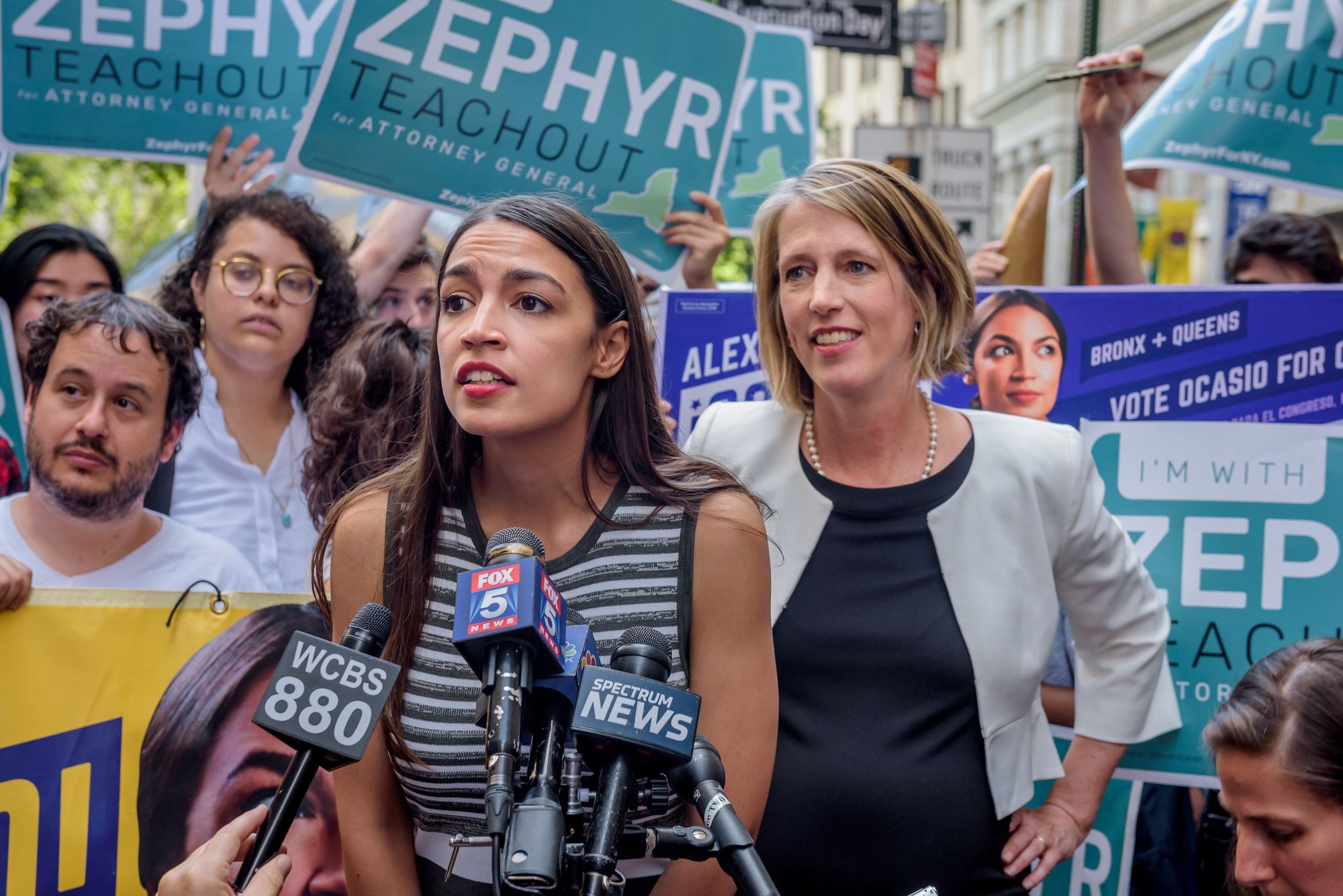
Simply not being Trump was not enough, according to the likes of Ocasio-Cortez and her contemporaries. Even in locales with Democrat controlled state governments seemingly obstructed by big money and corporate influence, a rallying call has been made suggesting that the elusive victory against “capitalist-oriented politics” is not-so-elusive after all. Films like Sorry To Bother You explicitly call for workers to strike in a very noted Marxist explication of community organizing and resisting the temptations of becoming a “petit bourgeois.” These same methods have been exercised in the private sector but most notably in the public sector, most interestingly in states governed by Republicans. The example of the teacher strikes this year in states like Arizona, Oklahoma, and West Virginia seem to corroborate the importance of organizing. Public policy such as Medicare-for-All no longer seems to be anathema to the very core of American identity as it once seemed, with reports funded by even the Koch Brothers suggesting that such a policy of universal healthcare would save the country trillions in the long run. The culture war may not yet be lost.

There are many with reservations about this movement, especially amongst leftists. The general concern is that the fever-pitch myopia on electoralism and using the systems in power borders dangerously on a reformist Neoliberalism. This is to say that candidates like Ocasio-Cortez refusing to take a clear stance on worker’s rights in an explicitly Marxist manner in favor of “focusing on the issues” resembles a certain kind of crafty distraction. They resemble the same rhetorical tricks that establishment Democrats use to discuss “access to healthcare” and “humanitarian crises” rather than a guaranteed right to healthcare and tragedies directly generated by US imperialism.
This confirms the potent and damning claim made by many that Ocasio-Cortez and other members of the Democratic Socialists of America are simply performative politicians complicit in the same delusions surrounding electoral politics as the current systems of power. Attempting to create life-altering shifts in the status quo using the modern political structure becomes a futile undertaking as they neither have the organizing power to create the change needed to be pervasive nor the establishment power to reign in the corporate interests that allow the status quo Democrats to continue preying on the political moment. The DSA is then rendered as merely a nuanced but redundant wing of the current Democratic Party as the desire to create “change from the inside” means that any radical positions are quickly co-opted. It mirrors the same gradualism that it apparently was supposed to be a critique of.
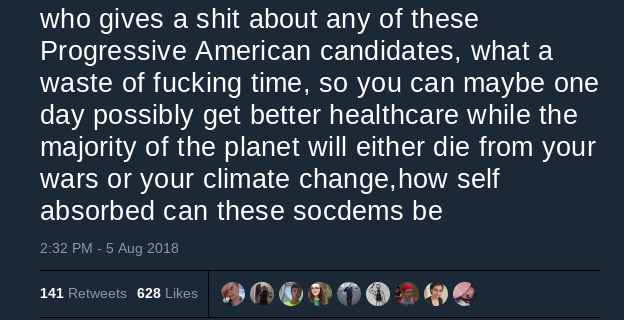
Nowhere is this best seen than when analyzing Ocasio-Cortez’s recent walking-back of her position on Palestine and in particular, a newfound support for the two-state solution. The root of many of the leftist criticisms regarding the DSA and its supporters is their failure to grapple with internationalism and the destructive ramifications of American foreign policy. When prompted on her previously established positions on the “massacre” of Palestinians and the “occupation” of Palestine, Ocasio-Cortez admitted that she “[was] not the expert on geopolitics on this issue” and affirmed a two-state solution. This is the same candidate that once tweeted that the situation on the Gaza border “is a massacre” and that “No state or entity is absolved of mass shootings of protesters”, even going as far as to condemn Democratic silence on the issue. Further clarification on the subject led to her literally call it a humanitarian crisis rather than even hint at the possibility that this is a situation in which the US government itself may play a role as once declared explicitly. A hardball question does not warrant complete reversal of one’s principles. Even if these maneuvers are her well-meaning attempts to evade politically charged claims of anti-Semitism conflated with Zionism levied against other leftist politicians like Jeremy Corbyn, this does not bode well for those who believe that institutional change is possible by showing up at the ballot box.

An additional problem with Democratic Socialism’s platform in the United States is its failure to resolve how to solve the oppression that is uniquely generated by racial stratification and how that might interact with the organization’s premier focus on class struggle. Despite recent support for DSA campaigns like that of Ocasio-Cortez, Black Lives Matter protesters have had a frigid relationship with Bernie Sanders and Democratic Socialists generally. The concern here is that the economic populism that acts as the fuel for this progressive movement has the potential to overshadow issues that cannot simply be explained by a class analysis such as mass incarceration of Black Americans and police brutality.
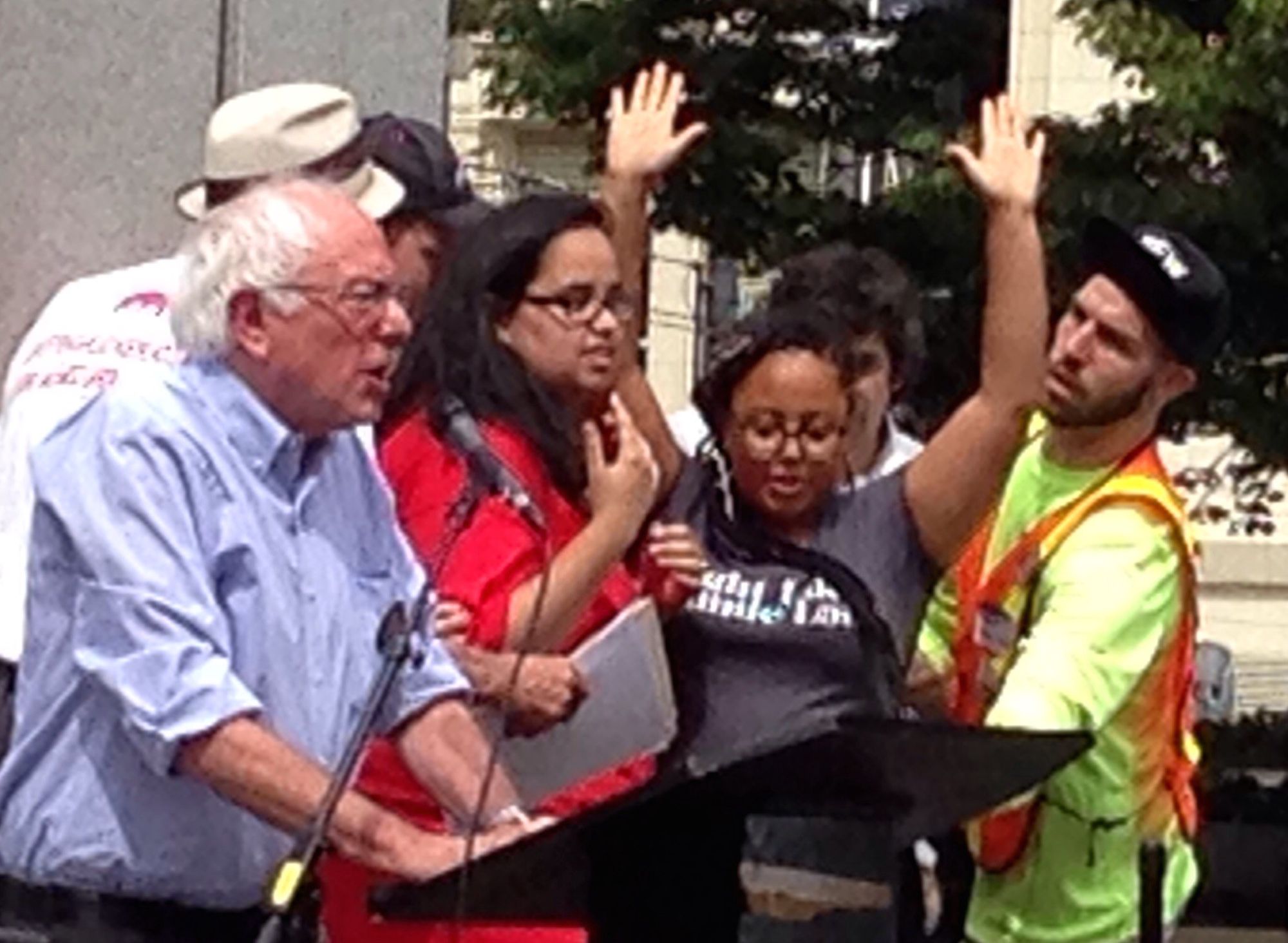
This divisive issue parallels a similar divide even amongst Black Americans, as seen in the conflict between Cornel West and Ta-Nehisi Coates in late 2017. Coates’s condemnation of the ontological condition of the Black American at the matrix of domination that is the prison industrial complex, redlining and other discriminatory practices is a specifically race-based callout. West advocates for a holistic understanding of both white supremacy as well as capitalism, questioning if Coates’s fixation on white supremacy leans almost towards fetishization. In doing so, Coates purportedly renders white domination “almighty, magical, and unremovable”, settling for a neoliberal solution that is both assimilationist and acquiescent. In agreeing to the American dream, he may be in fact end up believing that America’s promise is redeemable, exactly in the same way that the Democratic Socialists believe that the state is worth fighting for and protecting for the greater good. The schism between the radical and those condemned to be moderate is as old as time, amongst socialists and especially amongst the Black freedom struggle. The DSA and its candidates are no exception.
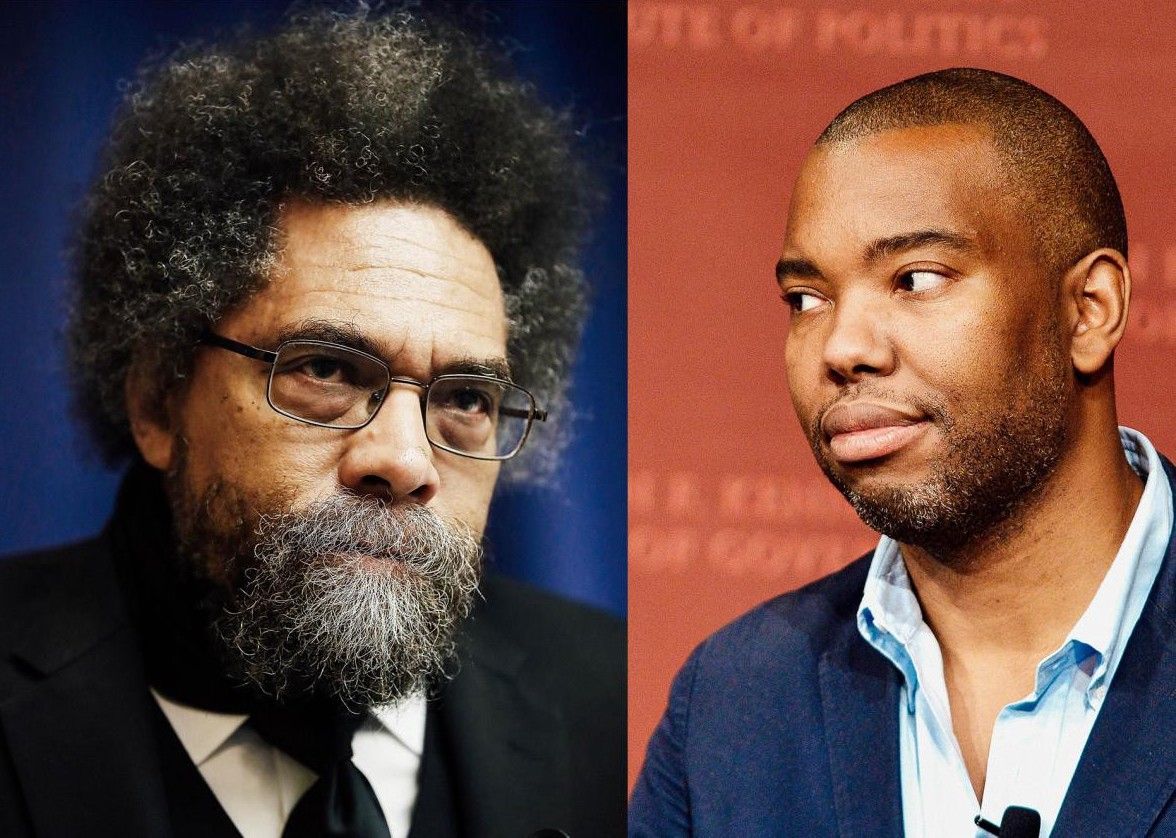
A movement may in fact be on the horizon but reality often strikes devastatingly when one is most optimistic. Two litmus tests may determine if the efficacy of Democratic Socialism’s combination of community organizing and using the state is actually viable. Kaniela Ing and Abdul El-Sayed are running for Hawaii’s 1st District and Governor of Michigan in the 2018 Democratic Party Primary respectively. They both have received strong support from the likes of Sanders and Ocasio-Cortez, both of whom have made appearances at El-Sayed’s rallies this past week. The same company that made Ocasio-Cortez’s riveting campaign videos go viral have produced similar content for Ing’s campaign. At the time of the publishing of this article, we will have known the results of El-Sayed’s campaign for Governor and will be tracking the results of Hawaii’s Primary due to happen on August 11th.

To say that these two candidates single-handedly determine the fate of the Democratic Socialists’ electoral power would be misguided. El-Sayed attempted to combat businessman Shri Thanedar’s 11 million dollar personal loan to his own campaign and Gretchen Whitmer’s establishment support. He proposed “the most detailed state-level single-payer health care plan ever” in addition to clean water for the state’s constituents in light of the Flint water crisis. Ing’s campaign boasts of an audacious platform of “fighting for Aloha” and opposing US imperialism as well as corporations, Medicare-for-All, and Universal Basic Income with job guarantee. Unfortunately, his bold run for Congress has been bogged down by campaign violations that will inevitably be used as talking points against him going into this election. That being said, to ignore this movement and its methods altogether would be to make the same mistake that Joe Crowley did. What’s clear is this: whether you choose to support the DSA or any variety of political candidate, or opt to ignore electoral politics and instead organize for Black and Brown folk and workers, or decide to give up all hope and simply buy-in and do nothing, choose carefully. Our future might depend on it.

Comments powered by Talkyard.